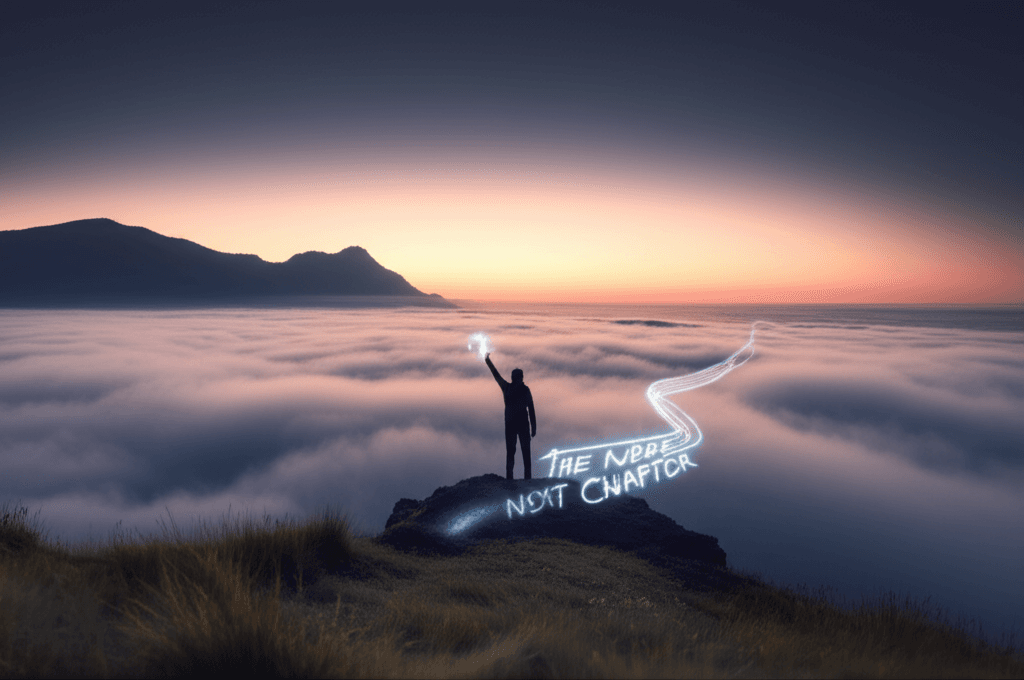Facing Doubt, Writing Forward with Will

Stand in the face of doubt and let your will write the next chapter. — Fyodor Dostoevsky
Doubt as Threshold, Not Dead End
At the outset, the line—whether paraphrase or precise quotation—casts doubt not as an abyss but as a threshold. In Dostoevsky’s worlds, characters seldom enjoy tidy certainty; they stand before chaos and choose. The Brothers Karamazov (1880) stages this stance vividly: Ivan’s “Rebellion” and the poem of the Grand Inquisitor dramatize the human confrontation with unanswerable questions. Yet by remaining present at the edge of bewilderment, they keep the possibility of agency alive. In this sense, standing in the face of doubt is already the first sentence of the next chapter.
The Will in Dostoevsky’s World
From this threshold, will emerges as the pen that moves. Notes from Underground (1864) mocks the tyranny of neat rationality—“two times two makes four” becomes a symbol of suffocating determinism. The Underground Man insists on the capacity to choose even the “unreasonable,” if only to prove one’s freedom. This insistence, however errant, illuminates the quote’s imperative: when certainty fails to guide, human will—messy, moral, and mutable—still drafts the page. Thus the self is not merely discovered; it is continuously authored.
Choosing Action Amid Uncertainty
Extending beyond the novels, philosophy supplies a framework for such authorship. William James’s The Will to Believe (1896) argues that in “forced, living, momentous” options, waiting for proof is itself a decision; action can legitimately precede full certainty. Likewise, Kierkegaard’s leap of faith in Fear and Trembling (1843) portrays commitment as a creative risk that discloses meaning only after the leap. Therefore the next chapter is not written when doubt disappears; it is written because we choose while doubt persists.
Authorship of Self Through Action
Consequently, the metaphor of writing becomes literal in how identity forms. Paul Ricoeur’s Oneself as Another (1992) and Dan P. McAdams’s work on narrative identity (1993) show that we become coherent selves by telling and retelling our lives as stories. Viktor Frankl’s Man’s Search for Meaning (1946) adds a hard-won insight: even when circumstances strip away freedoms, one can choose how to relate to them, thereby sustaining a future-oriented plot. Each decisive act edits the past and opens narrative possibilities the prior page could not foresee.
Will, Conscience, and Consequences
Yet the pen of will must answer to conscience. Crime and Punishment (1866) dramatizes will untethered: Raskolnikov’s “extraordinary man” theory licenses transgression, but the aftermath exposes guilt as a truer judge. His eventual confession, guided by Sonya’s compassion, reorients will toward humility and solidarity. Likewise, The Brothers Karamazov contrasts Ivan’s corrosive skepticism with Alyosha’s patient charity, suggesting that the strongest will is not the loudest but the most responsible. Thus the next chapter is not merely about power—it is about answerable freedom.
Practices That Turn Will Into Pages
Practically, resolve can be trained to write through doubt. Implementation intentions—“if X, then I will Y”—have strong empirical support for bridging intention to action (Peter Gollwitzer, 1999). Coupled with WOOP (Wish, Outcome, Obstacle, Plan) from Gabriele Oettingen (2014), mental contrasting transforms vague hope into executable steps. Meanwhile, crafting “small wins” (Karl E. Weick, 1984) sustains momentum, and brief narrative check-ins—one sentence each evening about how today advanced the story—keep authorship salient. In this way, the will learns its script, and tomorrow’s page arrives already primed for ink.